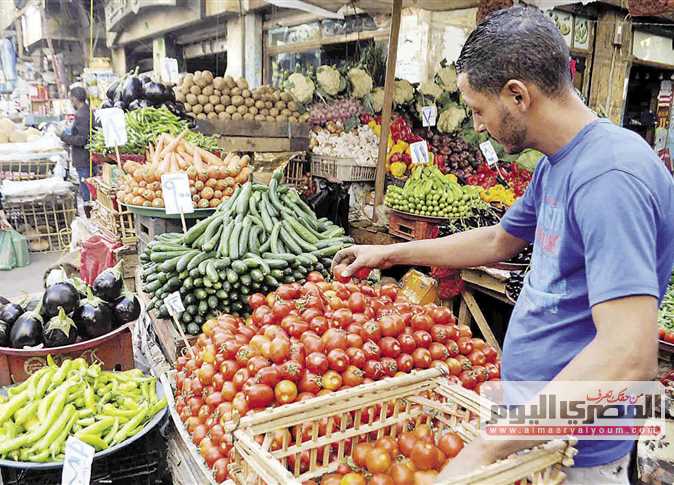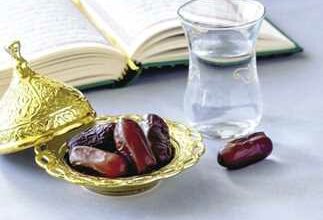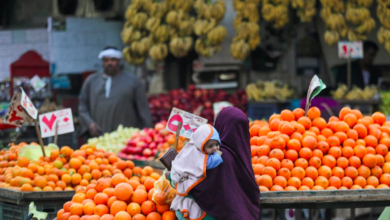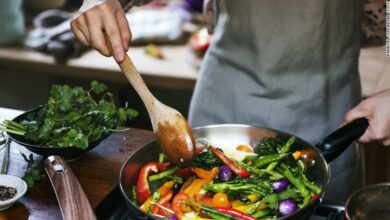"Come on! An auction!" yells Mahmoud Hasaballah, an owner of a small kiosk for selling plums in Soul village in Giza.
Hasaballah, a middleman between farmers and traders, stands in front of dozens of cartons of plums every morning, hosting a daily auction to sell fruit to retailers.
After a group of retailers gather, he sets the price of a kilo at LE10.75 before each retailer increases the price to reach LE11.30 at times. The quality of the plums determines its price, which varies from one carton to another.
Hasaballah gets 6 percent of the farmers' profit and 4 percent of the retailers' profit.
"My role is to mediate in this process between the farmer and trader. I pledge to hand over money for farmers, and to deliver the quantity to be sold to the dealer," said Hasaballah.
Sometimes retailers head to larger retail fruit markets as in 6 October City and Al-Obour. Mediators like Hasaballah in larger markets like 6 October and Obour receive a larger margin of the profit.
The percentage of profit obtained by traders there is higher, because fruits are sold at a higher price, and most of the retailers sell the fruit in Cairo markets which contributes to the rise in profit, said Hasaballah.
Those who go to Obour market are obliged to hire a vehicle to transfer their goods at LE350, in addition to the fees of the vehicle's entry through Helwan gate, which affects the price of the fruit in the end and increases its price on Obour market, Hasaballah explained.
At the entrance of Soul village, a number of small kiosks for selling different fruits lie on the roadside on the almost half-an-acre plot. Mashhour Sayed Mashhour, owner of a kiosk, said the highest profit is obtained by the retailer. His profit amounts to between 50 percent and 70 percent of the price of the kilo of fruit and between 30 and 50 percent of the price of the kilo of vegetables, he added.
The prices of fruits and vegetables depend on many factors according to supply and demand, the place of consumption, and the price of fertilizers used by the farmer in cultivation, he said.
Trader Yousry Abdel Aal, 44, recounts a number of tricks used in the "auction selling" of fruits.
Big dealers in some auctions send people working for them to participate in the auction secretly. They agree with them on the minimum price of the product they should not increase during the auction. The big dealer then is able to buy the fruit at low prices because he has no rivals during the auction, said Mashhour.
This dubious method affects poor farmers, and the consumer who is forced to buy the item at a high price, he said.
Sometimes some big dealers in the wholesale markets, agree with the peasants before the start of the season, so they pay the farmer a certain sum of money for the purchase of all his crop regardless of the size and weight of the crop. The farmer loses profit in this case but he sometimes agrees to the deal for fear of not being able to sell the whole crop.
The buyer of the whole crop monopolizes it and controls its prices, he said.
Edited translation from Al-Masry Al-Youm




